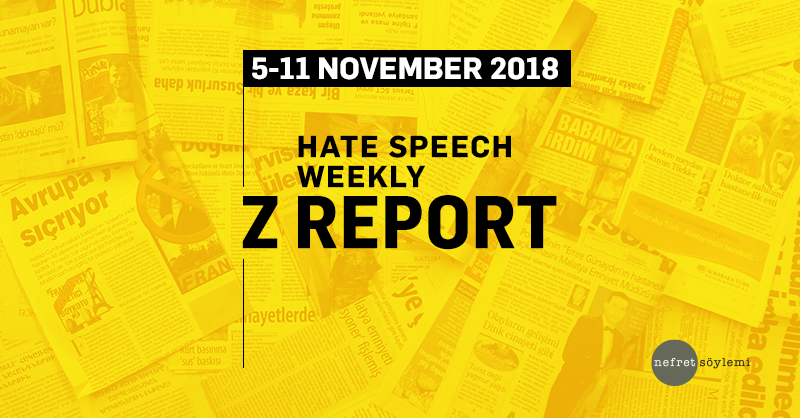Within November 5-11, 2018, four articles that generate hate speech were selected. You can find these articles that contain hate speech against Christians, Syrians, non-Muslims and Greeks as well as the analyses written about them below.1
1.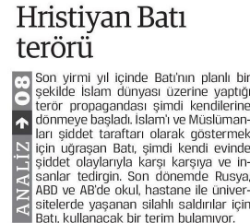
Riyad Makaev in his column titled “Christian western terrorism”, writes about an attack in California and questions the incident as we see in the following remark: “It is reported that the FBI was on the scene, 13 people were killed and the assaulter and a police officer were also killed. However, the assaulter is not defined as ‘terrorist’. If the assaulter was Muslim, they would have associated the assault with Islam and Muslims.” However, he associated Christian identity with terrorism and violence with the title. In this way, dichotomy of “Christian-Muslim” is incited and negative opinions about Christians are cemented. |
2.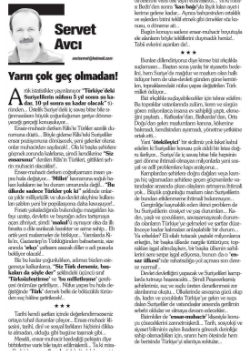
Servet Avcı, in his column titled “Tomorrow might be too late”, writes: “What about men? If millions of men who can use weapons enjoy their water pipes in another country, if they occupy and sprawl on the beaches of another country while their land is occupied, then it is normal for the ‘helping country’ to feel disturbed!” With this remark, he reinforces the negative perception of Syrian refugees on the basis of singular events. He also labels Syrians as a threat against society and escalates existing prejudice against them as we see in the following sentence: “We don’t have a history of marginalizing, but we must admit that the Syrian issue is about to become a crisis. All of these millions of Syrians might not return to their country even if the civil war ends and they pave the way for new social and criminal problems.” |
3.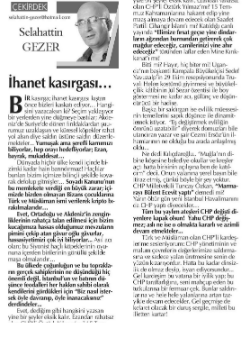
Selahattin Gezer, in this column titled “Storm of treason...”, writes: “The giaours who escalate the issues about which we are sensitive in order to loot the wealth of Middle East and the Mediterranean freely know our soft spots very well.” By using the word “giaour”, which is used as an expression of hatred and insult against non-Muslims in Turkey, he cements the perception of enmity against them. |
4.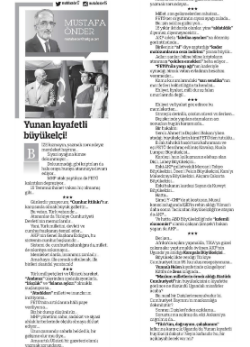
Mustafa Önder, in his column titled “Ambassador dressed like Greeks”, criticizes the cloths that Uganda ambassador and his secretary wore during the Republic Day ceremony. However, he expresses his criticism by writing “dressed like Greeks” and attributes a negative meaning to Greek identity. Thus, he cements the existing negative perception of Greeks. |
1. Within the scope of the media monitoring work focusing on hate speech, all national newspapers and around 500 local newspapers are monitored based on pre-determined keywords (e.g. Traitor, apostate, refugee, Christian, Jewish, separatist, etc.) via the media monitoring center. While the main focus has been hate speech on the basis of national, ethnic and religious identities; sexist and homophobic discourses are also examined as part of the monitoring work.

